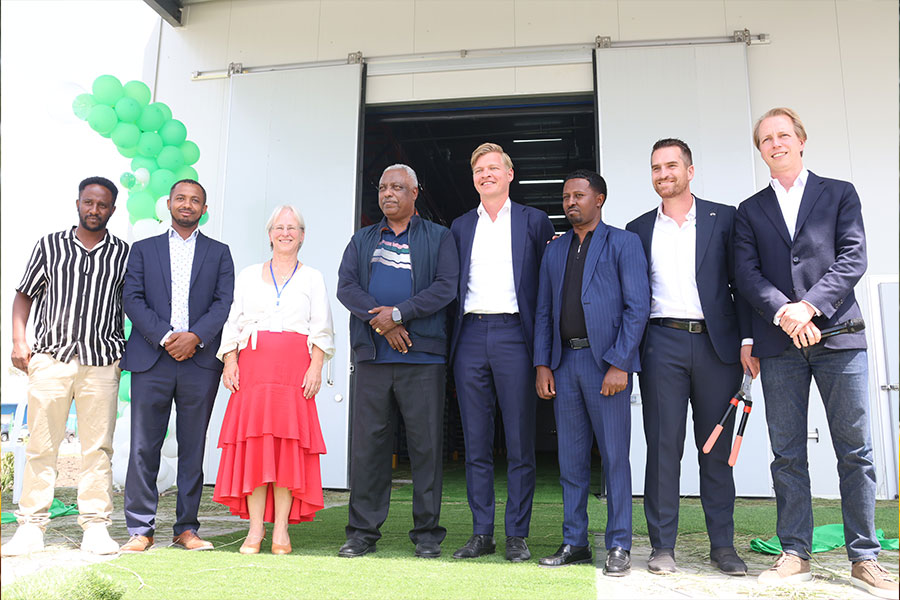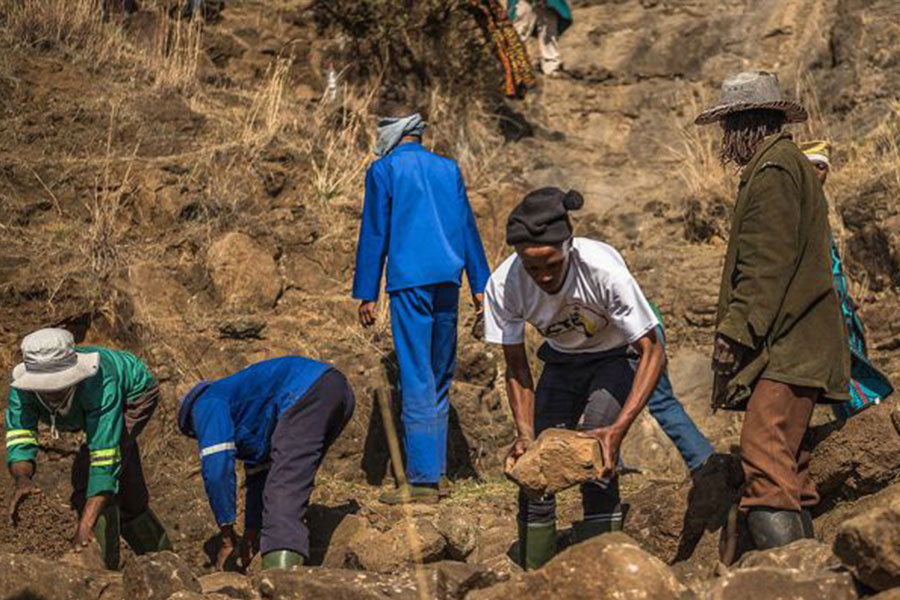
Radar | Jun 07,2025
Jul 15 , 2023
By Bill Gates , Bjorn Lomborg
The "Global Goals" are a phenomenal idea. They are what happened when the U.N. came together and said: “Here are the world’s biggest problems, and here is how we are going to measure progress on them.” The 17 goals include promises to end extreme poverty and hunger, fix climate change and education, and reduce inequality and corruption.
This year is the midpoint between the start of the goals, in 2016, and 2030, when they are supposed to be accomplished — and while the goals have done a great deal of good, the world is falling short on nearly all of them. This is the perfect time to assess the Global Goals (also known as the Sustainable Development Goals), recognize what is working, admit what is not working, and refine our approach so we can do the most good for the people most in need.
Let us start with something that is working very well.
The beauty of the goals is that they forced the world to agree on what matters and on the measures of progress. These agreements, in turn, are driving action: governments, foundations, and other funders have made strong commitments in aid and other forms of support for the world’s poorest, using the goals to guide where they spend the money. As the saying goes, “What gets measured gets managed.”
Here is the problem: The Global Goals are too much of a good thing. The 17 commitments are accompanied by a huge number of targets—169, to be exact.
Having so many targets would not necessarily be an issue if the world were stepping up to fund all of them. But it is not. Despite record commitments from donors, one report recently found that the funding for the goals will be short at least 10 to 15 trillion dollars each year for the rest of this decade. That is roughly equivalent to all of the taxes collected by every government in the world.
This massive shortfall calls for a two-pronged approach.
First: Do whatever is possible to shrink the gap. Donors need to meet and even exceed their commitments to meet the goals. Although overall foreign aid went up in 2022 for the fourth straight year, most of this increase amounted to refugee and humanitarian aid required by Russia’s war on Ukraine. Assistance for the least well-off countries actually declined.
There are some notable exceptions.
France, the Netherlands, the United States, and China have recently increased their funding for health in low-income countries. The Gates Foundation is on track to increase its total giving by 50pc—to nine billion dollars a year by 2026—with a focus on health and development. We hope other funders follow suit.
Second, even as donors step up, all of us need to recognize that inflation and rising interest rates are stretching governments to the limit. The sad reality is that the world is not going to find 10 trillion dollars more each year for the Global Goals. We need to identify the best buys in development—the investments that will do the most good with the funding that is available.
This does not need to involve guesswork. Thanks to decades of research into what works, we can use data to find the best interventions. For example, in a recent project led by Bjorn and featured in his new book, "Best Things First", economists identified 12 highly efficient policies that deliver enormous benefits at relatively low costs.
They found that simple ways to improve the conditions around births can save the lives of 166,000 mothers and 1.2 million newborns each year, at less than five billion dollars annually. And an additional 5.5 billion dollars per year spent on agricultural research and development for the poor would reduce malnutrition, help farmers thrive in a warming climate, and drive down food costs—delivering long-term benefits worth 184 billion dollars annually.
Other recommendations include efforts to prevent tuberculosis and malaria, immunize more children, improve education, and strengthen land ownership rights.
In all, the project found that the 12 policies would save more than four million lives a year by 2030 and generate annual economic benefits worth 1.1 trillion dollars for low- and lower-middle income countries. At a cost of about 35 billion dollars per year (in 2023 dollars) between now and 2030, that is a return of roughly 52 times the investment.
But the principles are even more important than any particular policies.
First: Let us recommit to funding work on the Global Goals, because it is saving lives and helping people escape extreme poverty. And second: Let’s acknowledge that the need is greater than the available funding, which means we need to focus on the efforts that will have the most impact. With these principles in mind, we can make sure that the Global Goals accomplish the greatest good.
PUBLISHED ON
Jul 15,2023 [ VOL
24 , NO
1211]

Radar | Jun 07,2025

Viewpoints | Mar 04,2023

Editorial | May 28,2022

My Opinion | Sep 30,2023

Commentaries | Dec 07,2024

Commentaries | Mar 30,2024

Viewpoints | Jun 04,2022

Viewpoints | Sep 06,2025

Commentaries | Jul 22,2023

Viewpoints | May 18,2024

Photo Gallery | 173903 Views | May 06,2019

Photo Gallery | 164131 Views | Apr 26,2019

Photo Gallery | 154214 Views | Oct 06,2021

My Opinion | 136591 Views | Aug 14,2021
Editorial | Oct 11,2025

Dec 22 , 2024 . By TIZITA SHEWAFERAW
Charged with transforming colossal state-owned enterprises into modern and competitiv...

Aug 18 , 2024 . By AKSAH ITALO
Although predictable Yonas Zerihun's job in the ride-hailing service is not immune to...

Jul 28 , 2024 . By TIZITA SHEWAFERAW
Unhabitual, perhaps too many, Samuel Gebreyohannes, 38, used to occasionally enjoy a couple of beers at breakfast. However, he recently swit...

Jul 13 , 2024 . By AKSAH ITALO
Investors who rely on tractors, trucks, and field vehicles for commuting, transporting commodities, and f...

Oct 11 , 2025
Ladislas Farago, a roving Associated Press (AP) correspondent, arrived in Ethiopia in...

Oct 4 , 2025
Eyob Tekalegn (PhD) had been in the Governor's chair for only weeks when, on Septembe...

Sep 27 , 2025
Four years into an experiment with “shock therapy” in education, the national moo...

Sep 20 , 2025
Getachew Reda's return to the national stage was always going to stir attention. Once...

Oct 12 , 2025
Tomato prices in Addis Abeba have surged to unprecedented levels, with retail stands charging between 85 Br and 140 Br a kilo, nearly triple...

Oct 12 , 2025 . By BEZAWIT HULUAGER
A sweeping change in the vehicle licensing system has tilted the scales in favour of electric vehicle (EV...

Oct 12 , 2025 . By NAHOM AYELE
A simmering dispute between the legal profession and the federal government is nearing a breaking point,...

Oct 12 , 2025 . By NAHOM AYELE
A violent storm that ripped through the flower belt of Bishoftu (Debreziet), 45Km east of the capital, in...